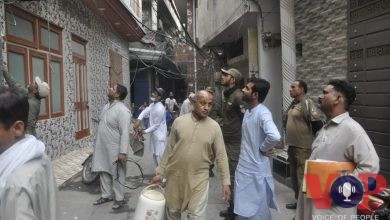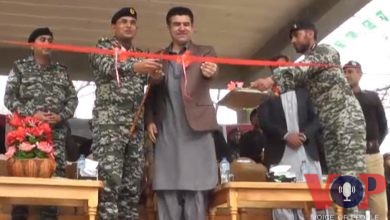
The People Vs. Media

**The People Vs. Media**
by [**HUSSAIN NADIM**](https://blackbox.nervecenter.live/author/hussain-nadim/)
[**April 5, 2020**](https://blackbox.nervecenter.live/the-people-vs-media/) in [**Trending**](https://blackbox.nervecenter.live/category/trending/)
There is a meltdown in the country, and it is not an economic one. For some reason, the journalist community has gone into a reactive mode. From **engaging politicians and Ministers** to now **engaging online trolls**, some of the senior-most journalists appear to be in a **state of panic**.
But what went wrong? Perhaps, an overlap of many wrongs that the media industry has continued to ignore over the years. For one, its inability to take critique!
Pakistan is a deeply polarized country but in the last 15 years, **there is a broad consensus in the public on the troubling role of media in the country**. This is not out of nowhere. Videos of **journalists seeking benefits from property tycoons, getting favors from institutions and governments are all in the public record**. It is so open that one of the **American scholars** working on Pakistan puts it, “**Pakistani press is the freest press that the money can buy**”.
However, more than anything else it is the substandard quality of work due to partisanship and compromise on objectivity that has damaged the **public credibility** of those that **represent** the journalist community in Pakistan. Unfortunately, by and large, **the journalist community continues to ignore this public pulse as an attack on freedom of speech from the hidden powers in the country.**
No doubt that journalism has historically been under threat in Pakistan from the mighty and powerful. That, however, changed in the last decade when **the mighty and powerful realized that it was easier and cheaper to buy the media houses and journalists rather than fight them**. Journalism, therefore, is now facing a bigger threat, foremost from the journalists and media houses themselves – that are **neither able to take critique nor the corrective measures**.
This inability to take corrective steps stems from the fact that journalists wrongly gauge their credibility through ratings from Media Logic and number of views on Youtube. Unfortunately, those ratings provide only the quantitative measure of eyeballs on a particular program. For instance, a well renowned journalist receives the highest ratings for his program – not because of his quality journalism but because of the sheer entertainment value that he provides on-screen. Such a rating, thus, is unable to provide an assessment on the credibility of the journalist.
Therefore, credibility needs to be gauged through a measure of qualitative sentiment of how people view your work. That is essentially through the feedback that you receive on social media platforms, which many journalists reject as propaganda against them.
**There is a fine line between journalism and propaganda. Propaganda has to be credible. Unfortunately, over the years the essence of both, journalism and propaganda is almost entirely lost on the media houses.**
Even in the absence of ratings, you can tell something is off within the journalist community when you read propaganda after propaganda published as news reports and opinion pieces from otherwise excellent journalists. **Just recently, one of the top investigative journalists in Pakistan published what read like an advertisement for a political party in power in one of the provinces in the country**.
There is a fine line between journalism and propaganda. Propaganda has to be credible. Unfortunately, over the years the essence of both, journalism and propaganda is almost entirely lost on the media houses.
As the 4th pillar of the state, journalists are supposed to be the voice of the people and defenders of public interests. In Pakistan, however, **they have become an extension of the ruling elite, lending their voice and defense to institutions and political parties against the very public that they are supposed to defend**. This is largely because **media houses** rely on **government advertisements** and **monetary favors** and hence serve the interests of the powerful. **This is the single biggest disservice to the profession of journalism that does not go unnoticed by the public that is now out with knives.**
Just a decade back the public could do nothing about it. But the advent of digital media changed all of that which is what perhaps explains the current frustrations of journalists. **The public now has a platform to engage with journalists in real-time and call-out what it sees as unfair practices against the public interests.**
At the theoretical level, this indicates a shift in power balance. Where once journalists and media houses had the power on setting narratives, and audit the powerful, that power and audit has now transitioned to individuals on social media that take journalists to task when they smell politics.
This is in no way a defense of online trolling or abuse that is prevalent in our society and must be condemned at all levels. But journalists and media houses in the digital world can no more pretend to be beyond critique, audit and questioning in the public forum. If anything, they must embrace it and harness the strength that comes with vulnerability. Otherwise, it will become increasingly hard to distinguish between a journalist and a troll.
Essentially, **this entire fiasco is not about state vs. journalists as portrayed by our media houses. It is about people vs. media** and as soon as the journalists and media houses see it as that, they will take the corrective measures to go back to their original role as being the defenders of public interests. It is eventually the public that will defend journalists in the long run, not any political party or institution.
[https://blackbox.nervecenter.live/the-people-vs-media/](https://blackbox.nervecenter.live/the-people-vs-media/) [ad_2]View Reddit by HarisAli8932 – View Source
powered by Focus News




